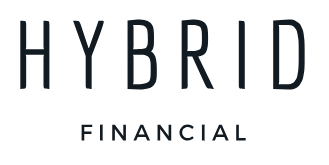Why Are Mortgage Rates Rising Despite a Drop in the UK Base Rate?
Mortgage borrowers across the UK have been puzzled by recent trends: the Bank of England’s base rate is down, yet mortgage rates seem to be ticking upward. What’s causing this disconnect? The answer lies in swap rates, the hidden driver of mortgage pricing. While the base rate typically influences many borrowing costs, it’s swap rates—the rate at which financial institutions lend to each other—that have the greatest impact on fixed-rate mortgage deals. Let’s dive into why swap rates are currently pushing mortgage rates higher.
The Role of Swap Rates in Mortgage Pricing
Swap rates represent the cost for banks to borrow from one another over a set period. When a bank offers a fixed-rate mortgage, it essentially "locks in" its borrowing cost for the length of the mortgage. To cover this cost and manage risks, lenders rely on swap rates. If swap rates rise, banks anticipate higher future borrowing costs, prompting them to increase mortgage rates to maintain profitability. Even as the Bank of England adjusts its base rate, swap rates react to a broader set of economic and market conditions, sometimes diverging from the base rate’s direction.
Why Are Swap Rates Rising Now?
Recent increases in swap rates are linked to several factors, both domestic and global. For instance:
Market Anticipations Around Government Policies
Upcoming policy announcements, such as those anticipated in the UK Budget, influence the financial market. Concerns that future policies could drive inflation or increase borrowing costs lead to heightened swap rates. With a high level of market uncertainty, lenders are pricing this risk into fixed-rate deals.Statements from the Bank of England
While the Bank of England’s base rate cuts have signaled some economic relief, officials’ comments on the potential future direction of rates have also kept swap rates elevated. If lenders perceive that rates may rise again to curb inflation, they hedge by increasing mortgage rates now.International Market Tensions
Global economic tensions also play a role. Issues such as geopolitical conflicts, shifts in the US Federal Reserve’s policies, and fluctuations in the value of the pound all contribute to a riskier lending environment. Higher perceived risks in the international lending market lead to increased swap rates, impacting UK mortgage rates even when the domestic base rate drops.
Impact on Mortgage Borrowers
For borrowers, rising mortgage rates create an extra layer of financial stress. Many first-time buyers who’ve waited to see if mortgage rates would drop further might now find themselves needing to act quickly to secure favorable terms. A year ago, a two-year fixed-rate mortgage for a buyer with a 40% deposit averaged around 6.16%. This past October, thanks to increased lender competition, the average had dropped to 4.84%. However, as swap rates increase, further cuts may be less likely, and some lenders are even raising rates in response.
For those whose fixed-rate deals are expiring, the timing is challenging. Nearly 1.6 million homeowners who enjoyed historically low rates on their fixed-term deals may face much higher rates upon renewal. This shift will also affect prospective first-time buyers, who may find it increasingly difficult to achieve affordable home ownership.
Renters Feeling the Knock-On Effects
The mortgage rate increases impact not only homebuyers but also renters. A rise in mortgage rates often results in higher buy-to-let mortgage costs for landlords, who may pass these expenses onto tenants. Additionally, some landlords concerned about stricter tax policies or tenant protections may choose to exit the market altogether, reducing rental supply and driving up costs for tenants.
Looking Ahead
Experts are cautiously optimistic that swap rates—and consequently mortgage rates—may stabilize once current uncertainties ease, especially after the upcoming UK Budget. However, lenders are proceeding with caution, advising potential borrowers to consider locking in a deal soon if they’re looking for fixed-rate mortgages. David Hollingworth, an associate director at L&C Mortgages, notes that waiting for lower rates always comes with risk, especially given the volatile market. “It isn’t a cause for panic but those that have been tempted to wait for lower rates may want to consider locking into a deal in case we see further increases,” Hollingworth advised.
In an environment where swap rates and economic uncertainties are playing an outsized role, mortgage rates are behaving independently of the Bank of England’s base rate. For those navigating the housing market, understanding the role of swap rates can provide greater insight into why mortgage costs are rising despite falling base rates. At Hybrid Financial, we’re here to help guide you through these complexities and find the best mortgage options to meet your needs, regardless of what the market brings.

